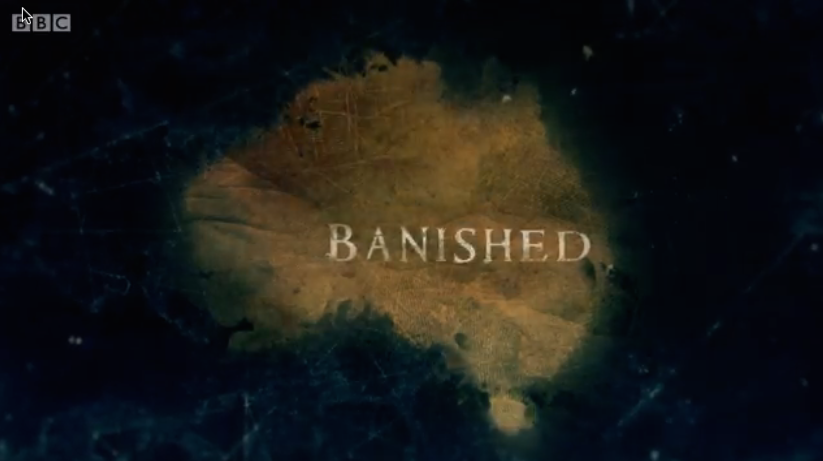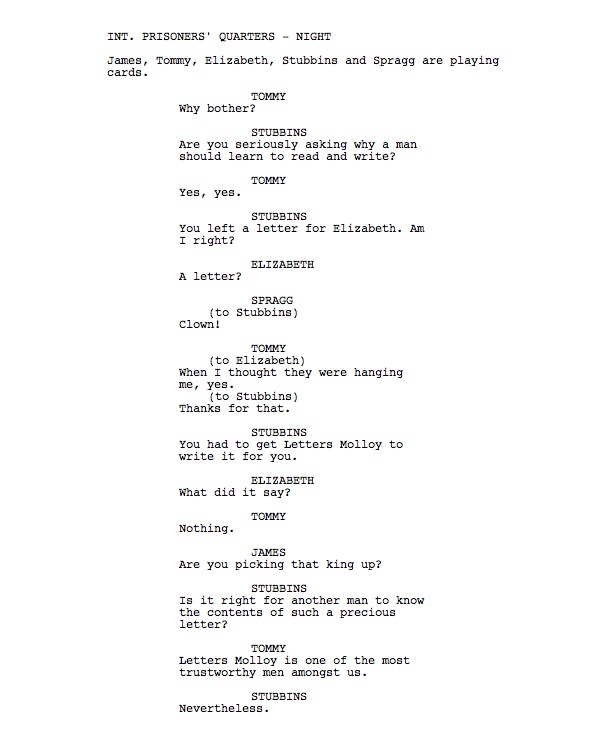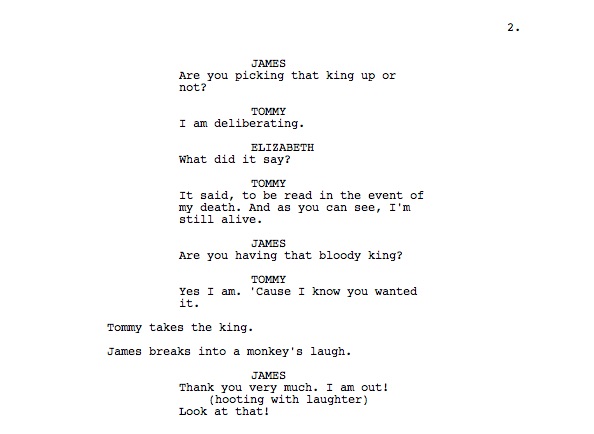If there’s one thing London Screenwriter’s Festival constantly encourages us writers to do, it is to learn from each other and from role models. “If one always looked to the skies,” said Flaubert, “one would end up with wings.”
Among the role models I look up to and hope to emulate is Jimmy McGovern. With “Banished”, he’s giving us a real treat. I’m enjoying it not just because it’s a great story with wonderful characters, but also because I now know enough about screenwriting technique to see how he makes our emotions soar.
Take this one scene from Episode 3, which comes in at just under a minute (despite being a page and a half in Final Draft, according to my transcription). From a screenwriting perspective it’s pure genius, replete with lessons for any budding screenwriter hoping to grow wings to enable their writing career to take flight.
(Minute 46:23)
Here are five key lessons you can draw from this scene.
1. Enter a scene late and leave early
The card game is already underway and we the audience arrive mid-way through the conversation. We don’t have to wait for it to warm up. It’s already reached an interesting point, which immediately draws us in.
Once all the information to be conveyed by the scene has been imparted in an entertaining way, and the punchline has been delivered, we leave. James has only just begun to gloat about having won the hand by fooling Tommy into thinking he wanted the king, but the audience has seen enough to get that message. We don’t need to hang around another 30 seconds or so.
In film, every second counts.
2. Drama is conflict
Conflict arises on different levels. McGovern places his characters in an inherently competitive situation: a game of cards. This heightens the natural tension between the characters as a result of their different agendas.
It is James who keeps us focused on this aspect of the scene, prompting Tommy three times to select a card. Tommy and Stubbins are distracted, debating the value of learning to read and write.
Stubbins reveals Tommy got another convict, ‘Letters’ Molloy, to write Elizabeth a letter while he was in jail awaiting execution. This creates still more conflict, because Elizabeth now wants to know what’s in the letter.
Additionally, it builds towards future conflict and creates dramatic irony through set-up and pay-off. We know Tommy’s letter was an outpouring of love and we are soon to discover that Stubbins' wife's letter is the very opposite. ‘Letters’ Molloy, “one of the most trustworthy men amongst us”, has lied.
A previous scene – when Tommy wrote his last letter in prison – is paid off, while a future conflict is set up. Stubbins is going to find out the truth sooner or later…
3. Contrasting Verbal Strategies
The dialogue is fresh and dynamic because each character has a different verbal strategy.
Sprag’s strategy is silence. He only delivers one line, of one word, in the whole scene.
Stubbins' is truth-telling. He reveals something Tommy would rather Elizabeth not know.
Tommy's is avoiding the subject. He bats away all questions about the contents of his last letter to Elizabeth.
Elizabeth's is curiosity. Now that it’s piqued, she wants to know what is in that damn letter.
James’ is interruption. By constantly diverting Tommy’s attention back to the card game, he fools him into thinking he wants that king.
All the characters have their own agenda, and they’ve all got different ways of going about getting what they want.
4. Dialogue As Action
Dialogue is not about telling the story. As this scene demonstrates, it’s about revealing character, entertaining the audience, pointing to subtext and creating anticipation.
The dialogue moves the story forward. Stubbins expresses his enthusiasm for learning to read and write. He wants to re-read the cherished letter from his wife, which gives him the strength to face the hardships of convict life, and to be able to write her sweet letters in his turn.
In the very next scene we will learn of ‘Letters’ Molloy’s deception and we will believe it when he tells Captain Collins that if Stubbins ever learned the truth, he would almost certainly kill himself.
5. Storytelling technique
The story in this scene is told with great economy in just 56 seconds. We the audience are –
- prompted to reflect on the emotion of a past event when Tommy was almost hung for standing his ground on being with the woman he loves
- given information to prepare us for a future emotional punch that will surely come when Stubbins discovers his wife abandoned him before he even left English shores
- entertained with the humour of Tommy’s flippancy
- surprised at the end by a “didn’t see that coming" moment when James wins the hand – for it’s not just Tommy he’s fooled with his guile, but us too.
A good storyteller is one who grips the audience with a multi-layered story told with brevity and humour, just as Jimmy McGovern does here. I can’t wait for Episode 4!





 Flux RSS
Flux RSS
